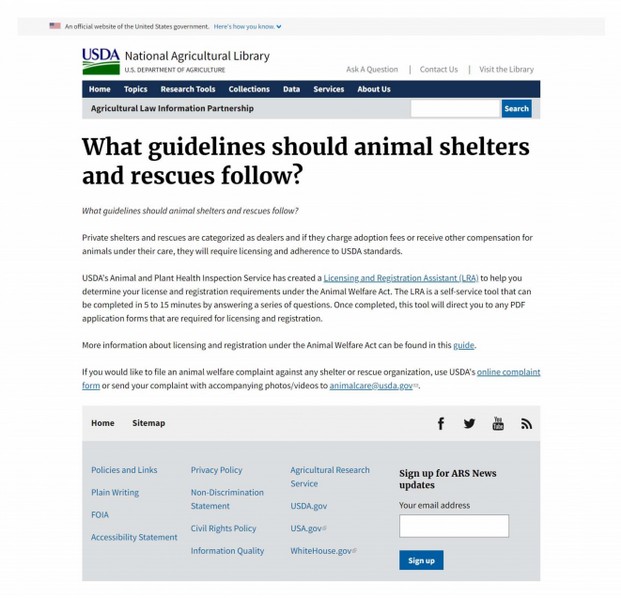- Florida dog rescues have little regulation, leaving consumers to discover new pet's temperament, for now.
Published by -NAWA News Feed- in -Animal Welfare- · Wednesday 30 Mar 2022
The idea of regulating dog rescues has sparked a schism among many persons involved in the industry, both directly and indirectly.
Wesley, a 52-pound bull terrier, was resting quietly in Ariel Sackett's lap at one point. Wesley attacked her right hand, right biceps, and right calf without warning a short time later.
Sackett, who was attacked in May after seeking to foster and eventually adopt Wesley, said, "My arm is finally starting to look like it doesn't have a large dent in it."
Sackett probably shouldn't have been able to adopt or foster Wesley. Wesley's bad behavior and medication had been documented by the shelter where he was confined. However, Noah's Rescue, the canine rescue that acted as a middleman in the transaction and is situated in Fort Lauderdale, was under no legal responsibility to provide such information with Sackett.
Unlike shelters, adoption organizations, and kennels, Florida dog rescues are not bound by any laws. A dog rescue can be started by almost anyone. Many of them aren't even physical locations.
In Broward and Palm Beach counties, no one knows how many dog rescues there are. There is no way of knowing how many dog rescues there are in Florida.
Nobody knows how many dogs they get, how many they send out for fostering or adoption, or whether those dogs are suitable for living with other animals or humans.
"I believe what's unfortunate about Florida is that it doesn't require these organizations to be registered," said Julie Levy, a University of Florida professor of shelter medicine. "As a result, we have no idea where they are."

Dr. Julie Levy, a University of Florida professor of Shelter Medicine.
If the rescue meets the requirements of the Florida Department of Agriculture and Consumer Services as a nonprofit benevolent organization, it can seek public donations and do nearly anything with them. Unless there is a complaint and/or investigation, which doesn't happen very often, no one will look into how the monies are spent.
"All of the money that are there may be used for whatever they choose," said Adam Leath, director of Volusia County Animal Services and a board member of the National Animal Care and Control Association.
Whistleblowers report that funds are sometimes misappropriated or spent for personal gain, such as jewelry and lavish dinners, rather than for the benefit of dog rescue organizations. They point to tax returns showing six- and seven-figure salaries, as well as facilities and resources that do not match such funding.

In other circumstances, social media videos blur the line between using animals responsibly to seek donations and exploiting animals to fund a luxurious lifestyle. "And proving that isn't easy," Leath explained.
Nonetheless, many of the dog rescue organizations perform honorable work that prioritizes the welfare of dogs. However, the lack of regulation provides dog rescues with a gap large enough to accommodate a busload of evil intentions.
Sackett is in luck. She hasn't died yet. Pam Robb, a 71-year-old volunteer with 100+ Abandoned Dogs of Everglades, Florida, was not so lucky. Last month, she died at a dog rescue in Oakland Park after being attacked by a dog. The dog that attacked Robb had to be put down. According to Facebook posts from 100+ Abandoned Dogs of Everglades Florida, its background and upbringing were unknown at the time of its rescue.
The idea of regulating dog rescues has sparked a lang schism among many persons involved in the industry, both directly and indirectly.
Some dog rescuers, such as Leath and Levy, as well as private detectives, believe that tighter regulation and enforcement of such restrictions could save lives, both human and canine. Others in the dog rescue industry, such as Michele Lazarow, a Hallandale Beach commissioner, and dog rescue businesses, question bureaucracy's usefulness.
"Rescuing is difficult," said Ylena Arias, the Palm Beach County Animal Care and Control's live release manager. "They take animals from various shelters across the country, and occasionally even abroad, in order to find the best possible home for them." And they're primarily based on donations.
"It's terrifying to think of regulating them because you're almost limiting the work they can accomplish if they're tightly regulated." Many disagree with Arias.
Regulation
The Broward County Code of Ordinances, Chapter 4, governs how dogs and cats should be treated. According to Emily Wood, head of the Broward County Animal Care and Adoption Division, investigators in Broward, like in most Florida counties, must normally be invited to investigate.
"Most of our inspections are prompted by complaints," she explained.
Experts say it’s time to regulate rescues and shelters. According to the United States Department of Agriculture;
"Private shelters and rescues are categorized as dealers and if they charge adoption fees or receive other compensation for animals under their care, they will require licensing and adherence to USDA standards."
"What guidelines should animal rescues follow?" Official position from the USDA.
According to Wood, Broward County has field officers that investigate animal complaints, but they are "very infrequent" when it comes to dog rescues.
According to Arias, Palm Beach County compels rescues to report every adoption and euthanasia. There is, however, no actual enforcement.
Many counties lack the personnel necessary to investigate dog rescues. Furthermore, no agency — city, county, or state — is likely to volunteer to take on the added task of overseeing rescues. "There aren't a lot of resources available," Leath explained. So is the a reason to turn a blind-eye for the regulation safety?
In addition to everything else, there is a cost to governing rescues. Leath worked for the American Society for the Prevention of Cruelty to Animals in the past. He brought up the Caboodle Ranch case from 2012, in which 673 cats were removed from a Madison County property in north Florida.
"We spent nearly $4.5 million for six months of sheltering those cats," he claimed, but no documentation was presented or referenced.
A more recent case resulted in a much smaller, but still significant, bill. Leath's department removed more than 200 cats from the Journey's End rescue facility shortly after taking over as director of Volusia County Animal Services in 2019. The animals' medical bills totaled $60,000 over three months.
If a rescue facility objects to a government agency taking its canines, the government agency must sue. In the meanwhile, the agency is responsible for housing the canines for a minimum of 30 days.
"The bill is passed down to the taxpayers," Leath explained.
The University of Florida collects data from shelters across the state every year to see how many dogs and cats they take in and how many they release.
"We stopped rescuing because they come and go, and many of them are chaotic," Levy explained. "In the first place, they don't keep the data."
No one penalizes the rescuers for failing to maintain such information, yet.
"And no one is collecting information at the state level," she said, despite the fact that shelters and rescues are now required to reveal their statistics upon request.
Dog rescues are regulated in Georgia and North Carolina. According to Levy and Leath, because regulation and inspection are done at the state level, such states are good examples of how Florida can conduct its dog rescues. And any information regarding dogs can be found on websites that are open to the public.
Because it monitors animal diseases, sales, and imports, Florida's Agriculture and Consumer Services agency indirectly governs dog rescues. However, if the rescue does not necessitate regulation in any of those sectors, the state is unlikely to intervene. Dog rescues have never been regulated in Florida; it solely oversees animal health.
If people don't seek out information on dogs like Wesley, who was eventually euthanized after another unprovoked assault, the dogs will continue to be placed in foster and adoptive homes.
Volunteer attacked and killed by “rescue” dog last month in Florida
When Sackett had her meet-and-greet with Wesley before taking him to her house for fostering, she was falsely told he wasn't on medication. He had a pleasant demeanor and played the part of a caring dog.
Sackett believes she should have demanded all pertinent information that was not mandated by law.
Sackett responded, "Maybe shame on me because I didn't read this," referring to Wesley's daily behavioral reviews.
Sackett, who owns two Yorkies, believes Wesley attacked her to keep her from leaving the room, rather than to harm her. Regardless, she wishes she had been informed about his drugs and conduct.
The state has investigated a few, like 100+ Abandoned Dogs of Everglades Florida, for misusing money. In 2017, more than 100 people were involved in the inquiry, which culminated in a settlement.
The basic issue, according to experts, is that people who adopt pets from shelters or donate to shelters must do their homework. In Florida, dog rescues are not regulated.
"Anyone can start and run one," said Levy. "No one will be looking behind their back." Until such likely regulations are set, people need to do their homework on such “rescues”.





